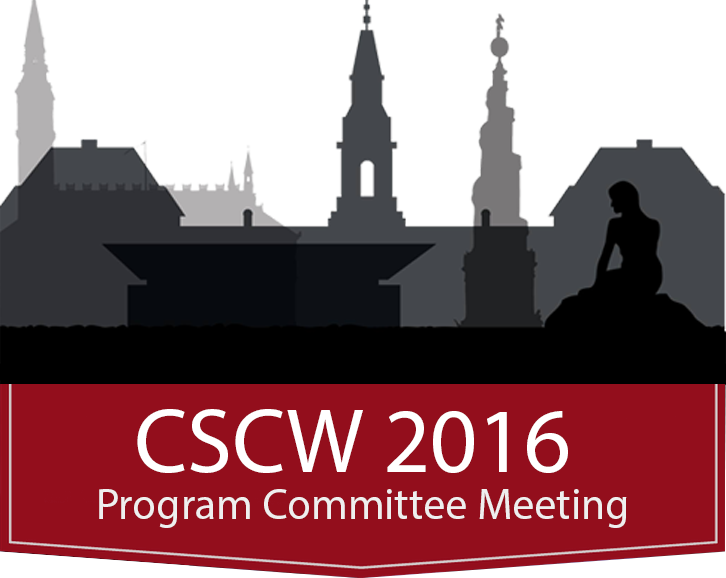An A-Z of facts on Denmark
Here are a few of facts about Denmark/ Copenhagen that might be useful to know for your stay.
Currency
Danish Kroner (DKK or kr). The smallest coin is the cobber 50 øre. 1kr, 2kr and 5kr are silver coloured and gold coloured are used for 10kr and 20kr. Notes are 50kr, 100kr, 200kr, 500kr and 1000kr.
Credit cards are widedy accepted in shops, restaurants, museums and etc, however pin code is needed or else you have to withdraw money from an ATM that can be found in many places. The closest ATM to conference venue can be found: coming soon
Electricity
220 volts AC (50Hz) standard two pin plugs.
Emergency Number
112 is the number for ambulance, fire brigade and police.
Events during the meeting weekend
Copenhagen Pride - August 11-15-
Strøm CPH August 8-15, which culminates with a garden party on the 15th
Food
Denmark is known for its delicious pastry, open sandwiches smørrebrød and world-class restaurant. Please go to the bottom of the page to see some information about eating places in Copenhagen.
Language
The official language is Danish, however the majority of Danes are fluent in English.
Passport
Denmark has travel document requirements for entry ( e.g. passports must be valid at least X months beyond the estimated return date). Please note that these requirements might be different depending on your nationality. See more about entry requirements here.
Pharmacy (Apotek)
Steno Apoteket (Steno Pharmacy) is open 24-hours a day. It is located at opposite the Main Station (Vesterbrogade 6, 1620 København V).
Time Zone
All of Denmark follows Central European Time (CET), which is one hour ahead of Greenwich Mean Time (GMT).
Transport
Denmark has an extensive and efficient public transportation system. More coming soon.
Shopping Hours
Shops are (usually) open Monday-Friday 10-17.30 and Saturday 10-15 or 16. Supermarkets and bakeries often open earlier. On Sundays shops are generally closed. Banks are closed Saturday and Sunday.
Many of the city's most famous and expensive stores can be found in the main pederstrian street, Strøget. It also features a multitude of souvenir shops and fast food outlets.
Sigthseeing
Coming soon.
Visa
EU citizens can travel freely to Denmark; citizens of other countries may require a visa. If you travel to Denmark from outside the Schengen agreement area, you may also require a visa. See here if you are from a country where you will need a visa to enter Denmark.
Water
It is completely safe to drink the tap water in Denmark.
Best food in Copenhagen?
The possibilities are amazingly broad, so we give you just a small glimpse of what can be found in here.
Places to grab food in Amager - nearby the conference venue:
Mayer’s Bageri - Amagerbrogade 48, 2300 København, Denmark
Foodshop No 26 on Thorshavnsgade 26, 2300 København, Denmark
Two best places in Amager:
Wulff & Konstali Food shop, Isafjordsgade 10, 2300 København S – Breakfast, Lunch
Madmanifesten, Tyrolsgade 6, Copenhagen S – Breakfast, Lunch, Dinner - walking distance from ITU and very family friendly
Until a few years ago, Danish food was essentially associated with potatoes and bacon, and Danish cuisine was completely unknown outside the country. Not anymore. Over the last decade, the New Nordic Cuisine has revolutionised Danish gastronomy and created an entirely new focus on local ingredients. You can read more about Danish food culture here. Or try it yourself:
Dyrehavn
Taxa
Kalaset (Swedish, but we aren’t keeping score)
Bodega Norrebro
The Union Kitchen
Salon 39
Café Langebro
The Italian cuisine is also to be found in Copenhagen. The city's Italian restaurants range from organic pizza places to an Italian Michelin experience. Our favorite places for pizza are:
Bæst
Mother
Neighborhood (Organic Pizza & Cocktails)
For meat, BBQ and overall unpretentious fun try:
WarPigs Brewpub
Nose2Tail
Madsvinet
Other cuisine:
Pate Pate/Adendum/Falernum/Antidote (Spanish inflected)
Taller (Venezuelan Gourmet)
Denmark might be the home of Carlsberg, but these days the country boasts far more than mass-produced varieties. The influx of microbreweries means Danish beer is enjoying a huge surge of popularity with the market being one of the most exciting in Europe, with plenty of styles and varieties being available to tempt beer drinkers to indulge. Visit Mikkeller and choose from over twenty types of beer or try other interesting places:
http://mikkeller.dk/locations/
http://www.copenhagenbeer.dk/%C3%B8lbar/fermentoren
http://www.olhus.dk/
http://cafelangebro.dk/
Danes might be famous for their beer, but Copenhageners enjoy a good cocktail too. The city has many cocktail bars with professional bartenders who know exactly how to mix, shake and stir that perfect drink:
http://lidkoeb.dk/
http://www.salon39.dk/
http://duckandcoverbar.dk/
http://www.barsyv.com/
Fun places with lots of options at once - highly recommended for tourists, but locals loves it too!
Torvehallerne – the glass market in the center of town;
Copenhagen Street Food - the city's first and only genuine street food market.
For inspiration, you can check these links:
http://www.guide-to-copenhagen.com/
http://verygoodfood.dk/
